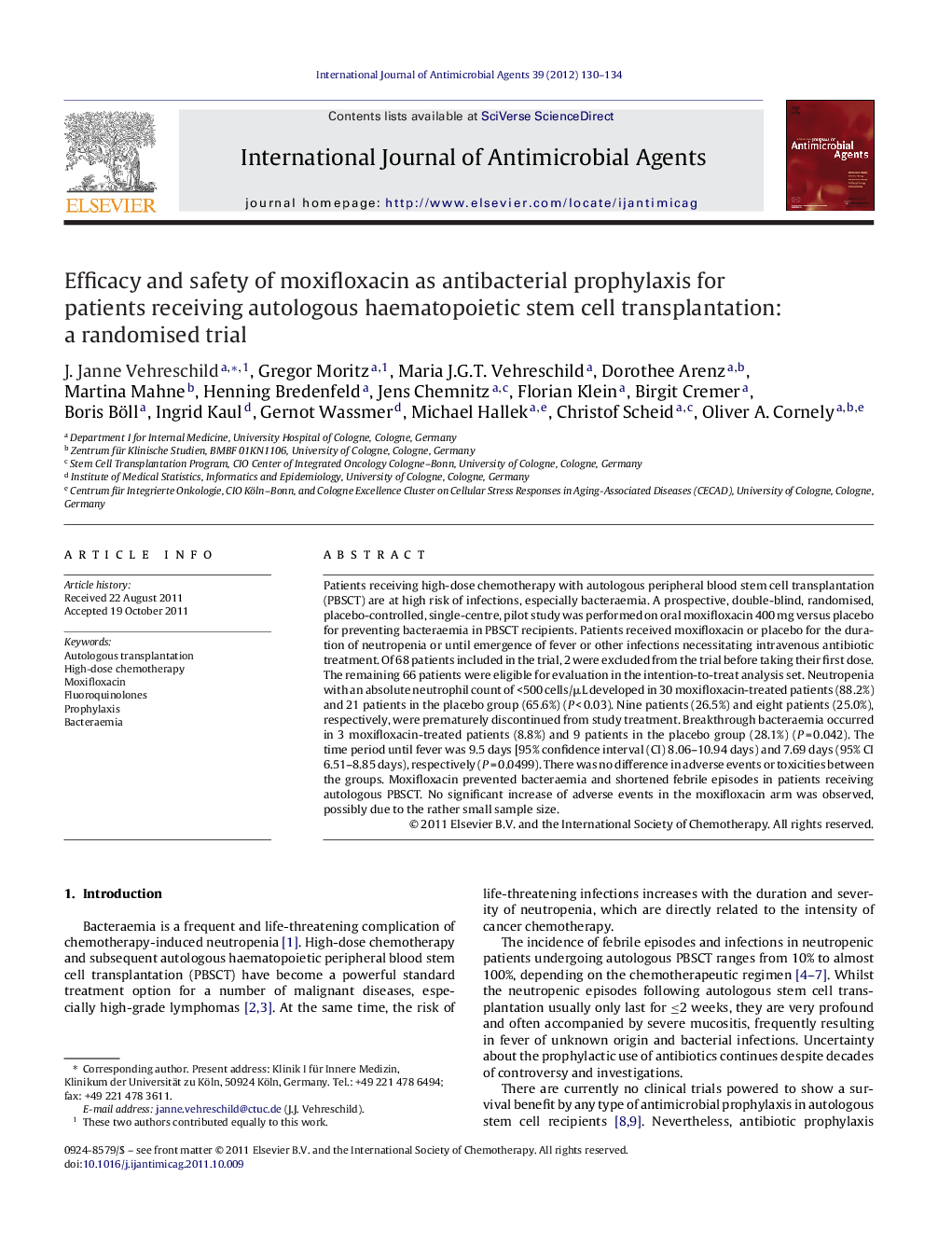| Article ID | Journal | Published Year | Pages | File Type |
|---|---|---|---|---|
| 6118170 | International Journal of Antimicrobial Agents | 2012 | 5 Pages |
Abstract
Patients receiving high-dose chemotherapy with autologous peripheral blood stem cell transplantation (PBSCT) are at high risk of infections, especially bacteraemia. A prospective, double-blind, randomised, placebo-controlled, single-centre, pilot study was performed on oral moxifloxacin 400 mg versus placebo for preventing bacteraemia in PBSCT recipients. Patients received moxifloxacin or placebo for the duration of neutropenia or until emergence of fever or other infections necessitating intravenous antibiotic treatment. Of 68 patients included in the trial, 2 were excluded from the trial before taking their first dose. The remaining 66 patients were eligible for evaluation in the intention-to-treat analysis set. Neutropenia with an absolute neutrophil count of <500 cells/μL developed in 30 moxifloxacin-treated patients (88.2%) and 21 patients in the placebo group (65.6%) (P < 0.03). Nine patients (26.5%) and eight patients (25.0%), respectively, were prematurely discontinued from study treatment. Breakthrough bacteraemia occurred in 3 moxifloxacin-treated patients (8.8%) and 9 patients in the placebo group (28.1%) (P = 0.042). The time period until fever was 9.5 days [95% confidence interval (CI) 8.06-10.94 days) and 7.69 days (95% CI 6.51-8.85 days), respectively (P = 0.0499). There was no difference in adverse events or toxicities between the groups. Moxifloxacin prevented bacteraemia and shortened febrile episodes in patients receiving autologous PBSCT. No significant increase of adverse events in the moxifloxacin arm was observed, possibly due to the rather small sample size.
Keywords
Related Topics
Life Sciences
Immunology and Microbiology
Applied Microbiology and Biotechnology
Authors
J. Janne Vehreschild, Gregor Moritz, Maria J.G.T. Vehreschild, Dorothee Arenz, Martina Mahne, Henning Bredenfeld, Jens Chemnitz, Florian Klein, Birgit Cremer, Boris Böll, Ingrid Kaul, Gernot Wassmer, Michael Hallek, Christof Scheid, Oliver A. Cornely,
